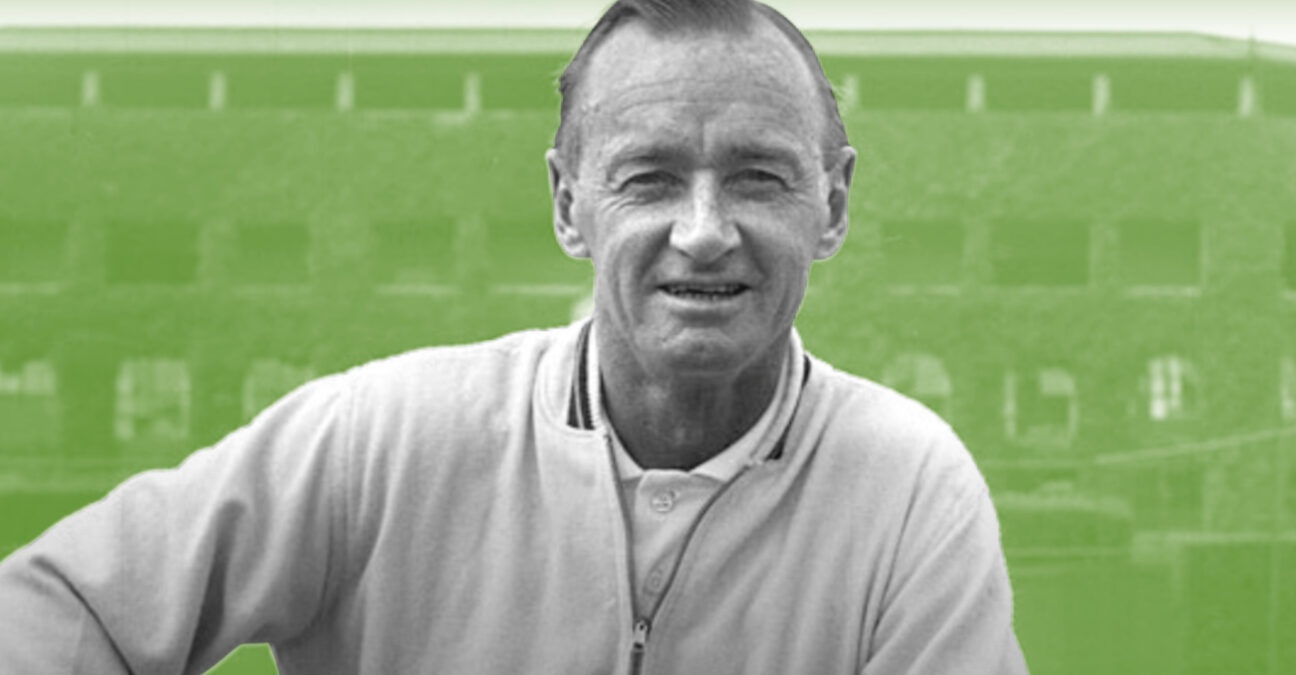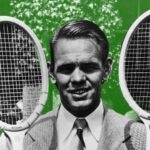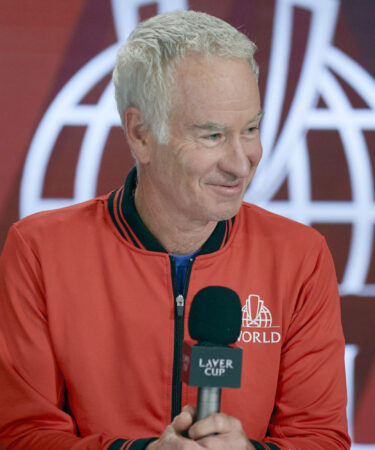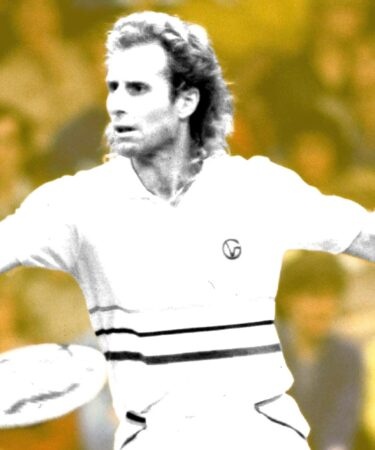December 27, 1985: The day legendary Australian coach Harry Hopman passed away
Every day Tennis Majors takes you back in time to recall an important moment in tennis history. Today, we go back to 1985 to pay a tribute to one of the most famous tennis coaches of all-time, Harry Hopman, from Australia, who captained his country to 16 Davis Cup titles

What exactly happened on that day?
On this day, December 27, 1985, Harry Hopman died from a heart attack in his home in Seminole, Florida, where he had established his academy. 16-time winner of the Davis Cup as a captain, the Australian legend also played a key role in the development of great players such as Rod Laver, Ken Rosewall, and later, John McEnroe and Vitas Gerulaitis.
The facts: The life and times of Harry Hopman
- Achievements as a tennis player
Born in 1906, in Glebe, not far from Sydney, in New South Wales, Harry Hopman began playing tennis only at the age of 13. Although his list of achievements was not comparable to other Australian legends, it was still impressive. A three-time Australian Championships runner-up in singles (1930, 1931, 1932), Hopman had more success at doubles: winner of the Australian Championships in 1929 and 1930 (partnering Jack Crawford, who defeated him at singles in the 1931 and 1932 finals); he also claimed five major titles in mixed doubles (four in Australia with his wife, Nell Hall Hopman, and the last one at the 1939 US Championships, partnering Alice Marble).
- The most successful Davis Cup captain of all-time
Despite these honorable achievements, Harry Hopman was mostly known for his work as the captain of the successful Australian Davis Cup team. His first campaign was in 1938 and the Australians (Adrian Quist and John Bromwich) were defeated by the United States in the final of the Challenge Round. It was the first of 22 Australian teams led by Hopman, and the following year, the same Quist and Bromwich came back from 0-2 down to defeat the United States and win the title.
After World War II, Hopman focused on his job as a sportswriter for a few years, but after Australia lost three finals against the United States, he was called to resume his role as the captain. Under him, Australia won no less than 16 Davis Cup titles, the last one in 1967. During these years, he coached legends including Lew Hoad, Ken Rosewall, Roy Emerson, John Newcombe and of course, Rod Laver. As a captain, Hopman was known for his commitment to his players. Jack Kramer, who was not particularly fond of Hopman, wrote that “he had no children, no hobbies, and tennis was everything to him”. According to his biography on hopmancup.com, when he was in charge of the team, he “organised their fitness programs, kept the team together away from the prying eyes of the media, watched over their lifestyle and maintained a critical and constant watch on their techniques.”
- An iconic coach who left fitness and work ethics as a legacy
In 1969, after the death of his first wife, Harry Hopman, who was a fierce opponent of professional sport and had fought against the establishment of what would later be known as “the Open era”, left Australia and began working at the Port Washington Tennis Academy on Long Island. His records as Davis Cup captain spoke for itself, and soon he was one of the most demanded tennis coaches in the country. He found himself counselling some future champions such as Vitas Gerulaitis and John McEnroe. However, Hopman took interest in coaching players at various levels, as Chris Lewis, the 1983 Wimbledon runner-up who trained with him in the 1970s, recalled.
“One of the reasons Hopman earned so much respect, was that he truly loved the game. He wasn’t just interested in the big names, but in anyone wanting to play tennis. At his camp, there were always dozens of inexperienced players, as well as the bigger names, and Hopman took a personal interest in all of them.”
Hopman was a coach who believed in constant drilling and in the value of physical conditioning. In 1976, he moved to Florida, where, according to Lewis, “he watched his players from his balcony through a pair of binoculars to make sure they were sticking to the prescribed course and running at the right speed” during their fitness sessions.
”He got involved personally in all of the instruction,” his widow said, according to The New York Times, after he passed away following a heart attack on December 27, 1985. ”He tried to get out on the court every day. He was out playing here yesterday afternoon.”
His players had such respect for him that none of them ever dared calling him “Harry”: even to John McEnroe in his later years, he was always referred to as “Mr Hopman.”
What next? The Hopman Cup is created in 1989
Harry Hopman’s academy would still bear his name after his death. One of the most famous tennis resorts in the world, its facilities would be used by several tennis stars, including Martina Hingis and Jennifer Capriati.
A mixed competition, in which male and female players are on combined teams and represent their countries, would be named the Hopman Cup as a tribute to the famous coach. It was created in 1989 and was held in Perth. His second wife, Lucy, attended the event every year until she passed away in 2018. The most recent edition of the Hopman Cup was held in 2019 with Roger Federer and Belinda Bencic winning the title for Switzerland that year.
In 2023, the tournament was added back to the calendar but will be held in Nice, France, from July 19-23.









